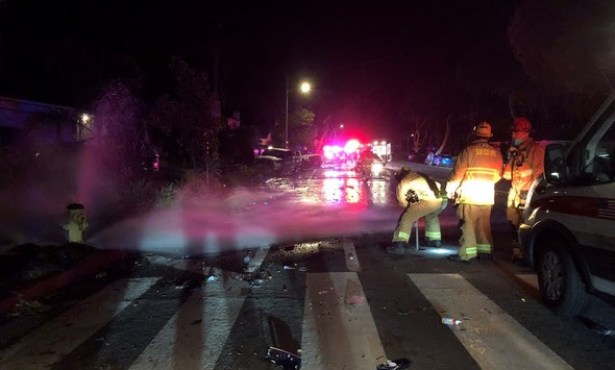CHARTING THE HOPE DISTRICT
by Ethan Stewart
With parents organizing to propose a charter school in the Hope
Elementary School District, officials held an impromptu
informational hearing Monday night with a Los Angeles-based lawyer
who specializes in charter-school policies. Howard Friedman — who
has represented school districts for nearly 30 years — answered
questions from dozens of parents who view the possibility of a
charter school in the predominately white, ultra-successful,
cash-strapped Hope district as a very bad thing. Offering up a
mixed bag of good and bad news, Friedman painted a picture in which
the group of charter hopefuls — known as the Community Charter
Group — could, if they meet all the state mandates, force a charter
school upon a district that clearly would not welcome it. For Hope
District to be legally bound to provide a site for the new school,
Friedman explained, the group would need signatures of intent from
either half of the parents of the proposed school’s student body or
half the would-be teachers, and then 80 signatures of parents with
children already living in the district.
Though the Community Charter Group has not even begun to collect
signatures, there was no shortage of ill will Monday night among
Hope School board members and the nearly 100 parents in attendance.
At the core of the concern is the district’s recent economically
motivated decision to deny out-of-district transfers — a move that
flies in the face of Hope’s storied history of middle-class white
transfers — and speculation that the charter movement is an attempt
by parents to circumnavigate the new policy. The policy change
would allow the district to qualify for basic aid funding — which
derives from district property taxes — rather than the more
traditional state funding based on average daily attendance
numbers. While basic-aid status would allow the district to keep
more money in-house, the opening of a charter school — which would
require the district to allow students from all over to attend —
would diminish the essentially fixed pot of district funding. As
Hope board member Steve Weintraub — who urged parents to rally
against the charter plan, calling it “us vs. them” — put it, “The
reality is that a charter represents a definitive financial threat
to our district.”
According to Charter Group spokesperson Angie Dukes, the charter
school discussion began last June, some eight months before Hope’s
transfer decision, and they have “no intention” of specifically
targeting Hope as their new home. Acknowledging the financial
hardships of putting a charter school in a basic-aid district,
Dukes explained, “It’s not about the Hope District and their
transfer policy … We are looking for a different educational
experience, and for that we need to keep all our options open.”



